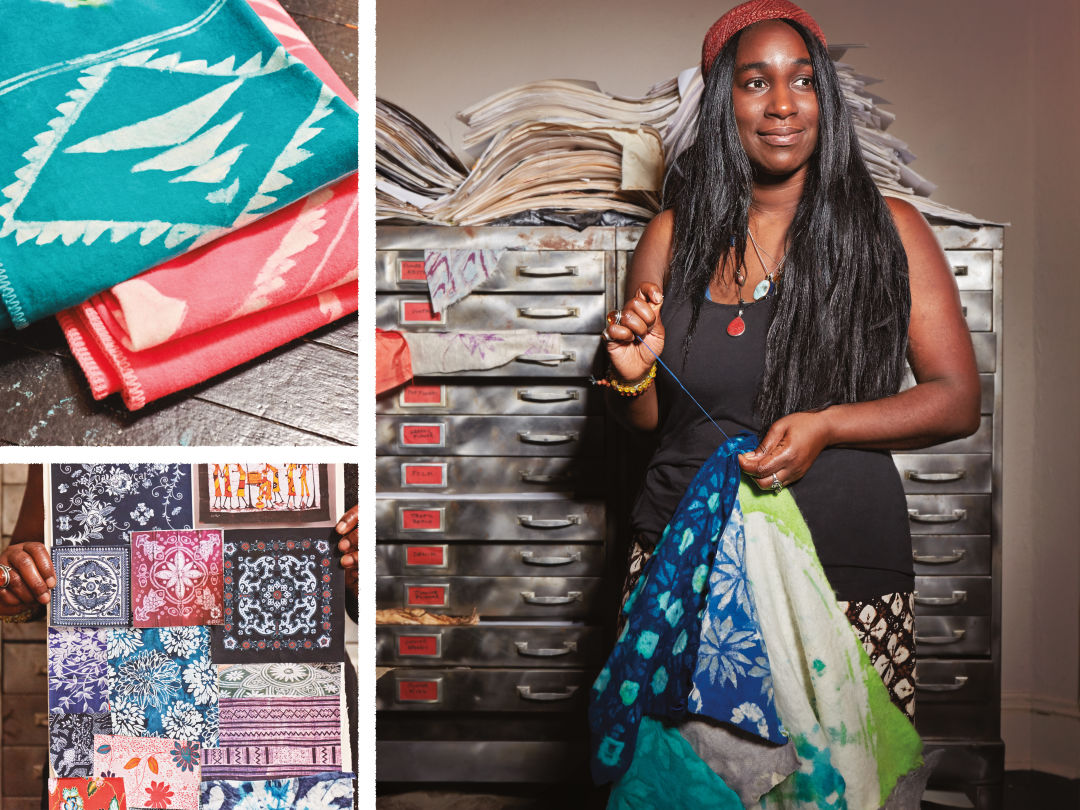Textile Artist Tricia Langman Brings the World of Batik to Portland

CLOCKWISE FROM TOP LEFT: Tricia Langman’s batik throws for Pendleton; the artist in her studio in Northwest Portland’s historic Hazel Hall House; Langman’s work draws on an international context of pattern and color.
Image: Nicolle Clemetson
To stand at the intersection of local craft and international design, climb the stairs to Tricia Langman’s Northwest Portland studio. The textile artist’s jumbled workspace, littered with fabric samples, books, and paints, encapsulates the familiar Portland artisan ethic of all-small-scale DIY everything. (The house itself, Langman’s base since 2008, has its own creative pedigree: early- 20th-century poet Hazel Hall lived in the Victorian rambler.) “Half of my work is very hand-done,” the 49-year-old says. “I’m in there batiking.”
At the same time, Langman’s story is global. Born and raised in northwest London—“I’m a pure Londoner”—with parents from Ghana, she recalls a childhood spent amid stacks of African prints and patterns. Training in Brighton, Paris, and New York led to a textile line launched from a dirt-cheap Tribeca loft in the early ’90s, when such places existed. The age-old quest for space and off-the-grid inspiration drew her west, where Langman has parlayed a Portland base into work with international names.
She created hand-painted, Maasai-inspired dresses for Ralph Lauren and packaging for Clinique; she sells lush floral patterns to the Gap and Calvin Klein. A collection of hand-dyed batik throws for Pendleton proved a natural union of the Northwest and her fascination with a technique rooted in Indonesia. (She’s working on a documentary about batik around the world.) Current projects include a line of Japanese-inspired wall hangings for West Elm and a sustainable-textiles curriculum for the Art Institute.
“Being in Portland, you don’t have to follow the trends,” she says. “On the West Coast, individuality is key. These days, when everyone can see everything, it’s especially important to have that perspective.”




